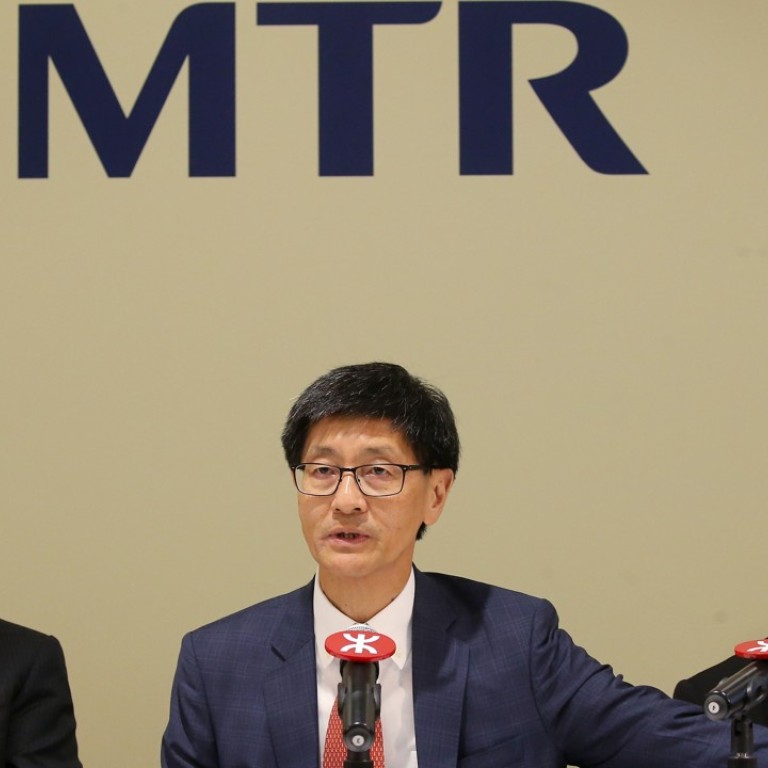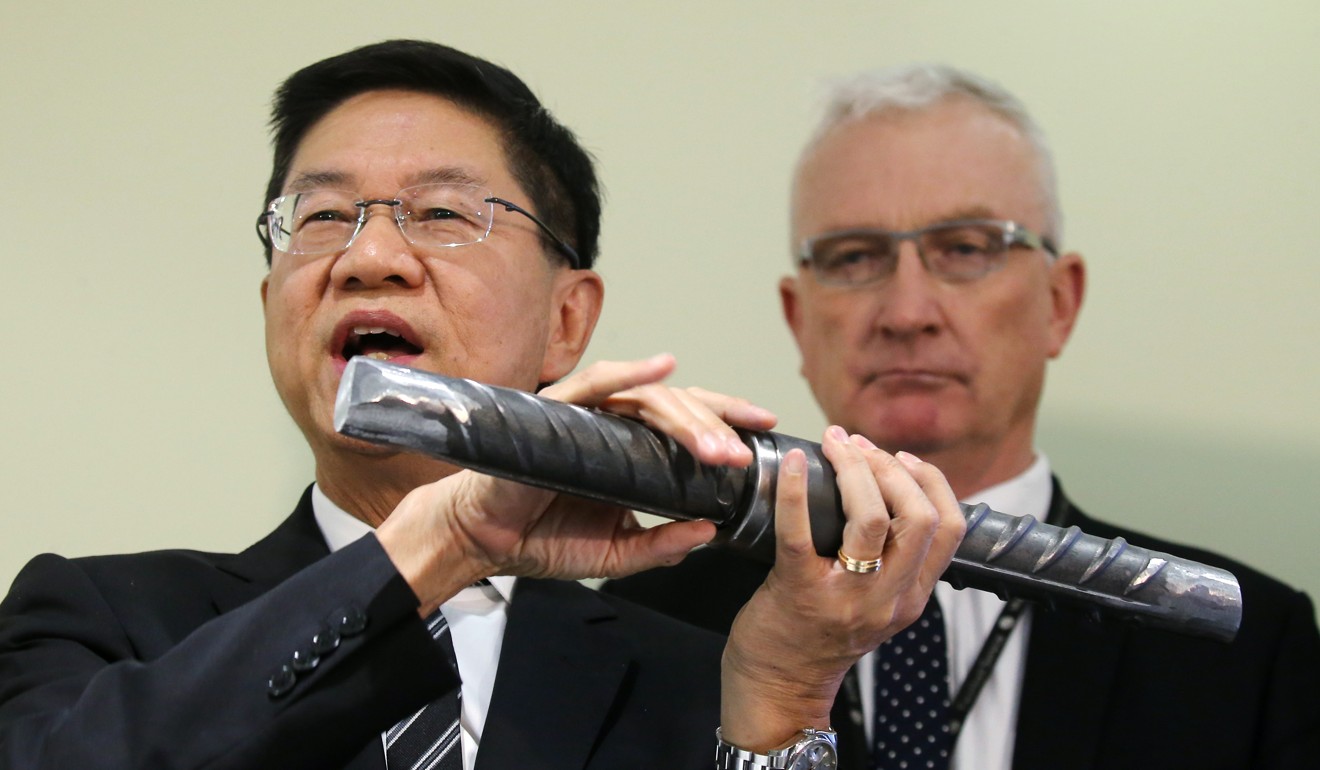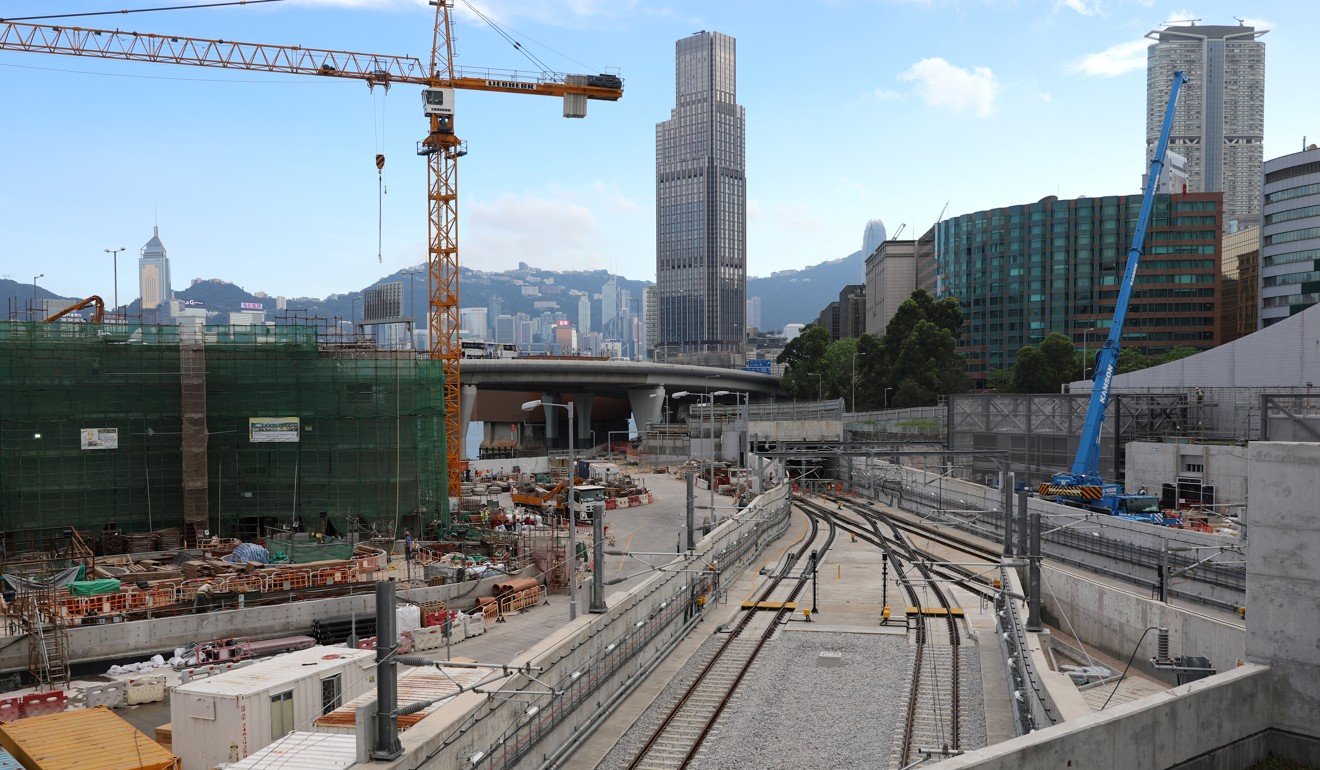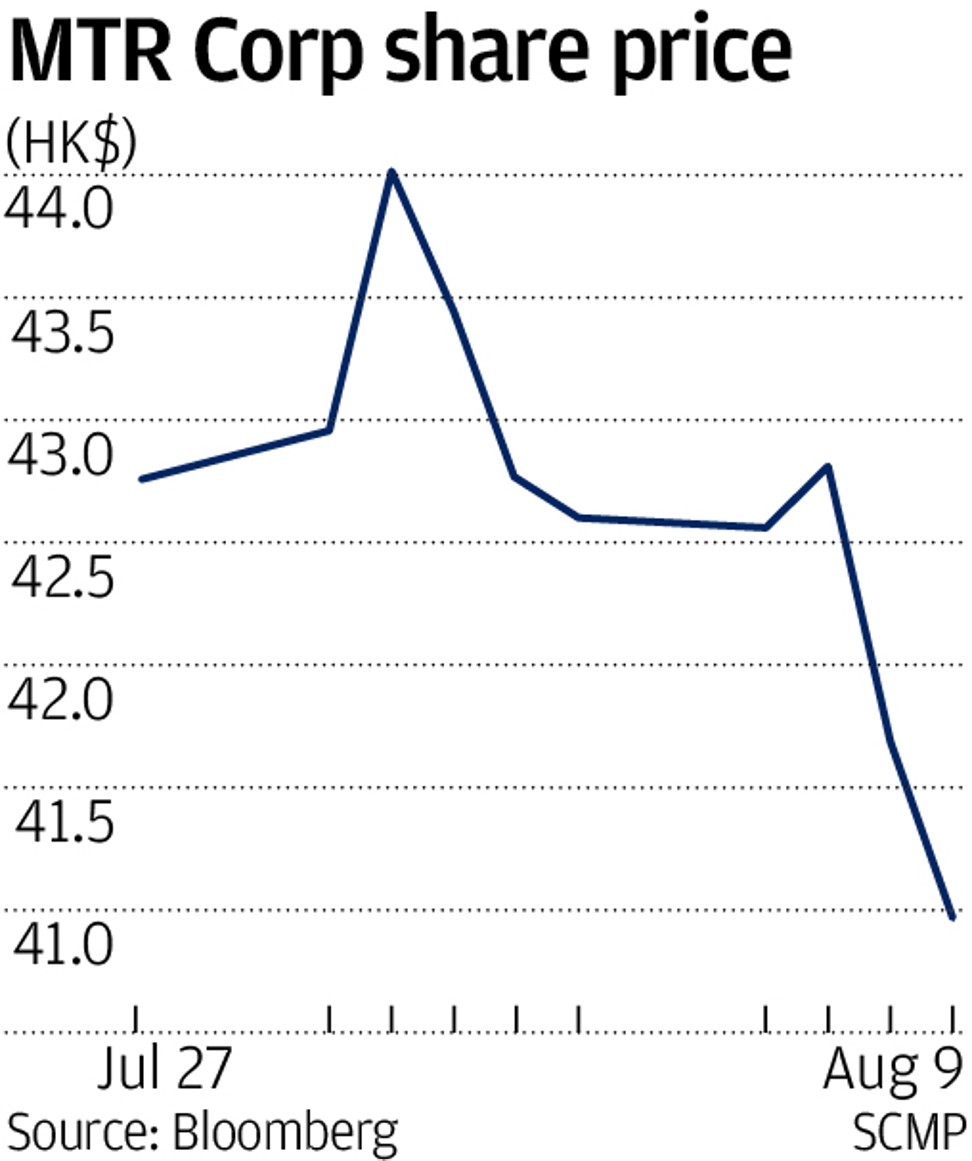
History repeats itself at Hong Kong’s scandal-plagued MTR Corp
Management shake-up at city’s rail giant comes with call to eschew hefty payouts, and warnings of punishments to come
When the government aired the MTR Corporation’s dirty laundry over Hong Kong’s most expensive rail project ever, it sparked a forced exodus of top brass and rocked the city’s engineering industry.
It was a case of history repeating itself at the rail giant – majority-owned by the government – with the second major shake-up in four years.
On Tuesday, the administration said it no longer had trust in the HK$97.1 billion Sha Tin-Central rail line’s management team, after discovering that it gave contradictory evidence about faulty work on the link’s Hung Hom platform.
The fall from grace of Hong Kong’s MTR: a timeline of events
It ordered the board to kick out department heads, brought in a crack team of three retired civil servants as interim advisers, and pushed police to probe any crimes involved. It threatened to claim financial compensation from the corporation.
Leighton Contractors (Asia), the company in charge of the Hung Hom station work, faces government regulatory action, as yet unspecified. It has kept silent on the scandal throughout.
“The MTR Corp’s performance, on project management, risk management, internal communication and information disclosure, is poor,” said Greg Wong Chak-yan, a former president of the Hong Kong Institution of Engineers (HKIE).
The MTR Corp’s performance, on project management, risk management, internal communication and information disclosure, is poor
The professional body’s current president, Philco Wong Nai-keung – who was the MTR Corp’s projects director until the recent clear-out – refrained from commenting on the project. Lee Tsz-man, Jason Wong Chi-ching and Aidan Rooney were the three other senior managers to leave the company on Tuesday.
The HKIE said Wong was still its president, and the MTR Corp should offer legal support for the departed engineers to clear their names. But if any fraud is proved, they will face disciplinary action from the body, including being stripped of their membership, it said.
“I feel so sad, really sad about the engineering industry, which is in a confidence crisis now,” the Hong Kong boss of a global engineering firm said, requesting anonymity. “We need a full story of what is wrong with the project, to clear the bad impression of the industry.”

Officials had said they found contradictory evidence in reports submitted by the MTR Corp, centred on work under Hung Hom station, the interchange between Tai Wai and Tuen Mun, joining up an 11km section of the rail link, between Tuen Mun and Ma On Shan (the Tuen Ma line). The other section runs between Hung Hom and Admiralty.
More subsidence problems as pipes found bent at MTR station site
The government criticised the corporation, which admitted keeping officials in the dark over a huge change in plans for a diaphragm wall supporting the platform. Authorities also said there were documents certifying 23,500 couplers on the platform, but 2,000 couplers were removed for what the MTR Corp said was a better design.
Veteran engineer Ngai Hok-yan and Greg Wong said the altered design was viable, but the MTR Corp should have told the Buildings Department about it. The MTR Corp said Leighton revised the specifications.
There is a certain amount of politics in the decision to hold the CEO liable for defects in a relatively small part of a project
Lam was referring to the case of former corporation chief executive Jay Walder, who pocketed a HK$15.7 million settlement for an abrupt resignation in 2014. A government investigation censured him for poor judgment during monitoring of the cross-border high-speed rail link. Former projects director Chew Tai-chong, censured in the same probe, took home performance-related pay of HK$400,000 upon his premature retirement.
Walder was criticised for failing to keep the board and the government informed about the cost overruns and delays on the project.
Although Leong tried to improve internal communication, Ma said, it took two to tango, and improvement required staff cooperation.
Corporate governance activist David Webb said the government’s treatment of Leong – who took responsibility for the inaccurate information – was unfair.

“There is a certain amount of politics in the decision to hold the CEO liable for defects in a relatively small part of a project, for which the projects director and the company’s contractor were primarily responsible,” Webb said.
“Kicking out the CEO in a politicised move will make it harder to attract good CEOs into government-controlled businesses.”
Baptist University finance professor Billy Mak Sui-choi said there was a fault line between lower and top management at the rail firm, and called for better internal communication.
“Key staff with potential to be promoted to the top echelon should rotate their positions in different divisions,” he said. “Divisions working in silos are not uncommon in government-controlled entities.”
News of the management shake-up eroded investors’ confidence, sending MTR Corp shares lower for the third day in a row, to close 6.4 per cent down to HK$40.05 on Friday, from HK$42.80 on Tuesday.


